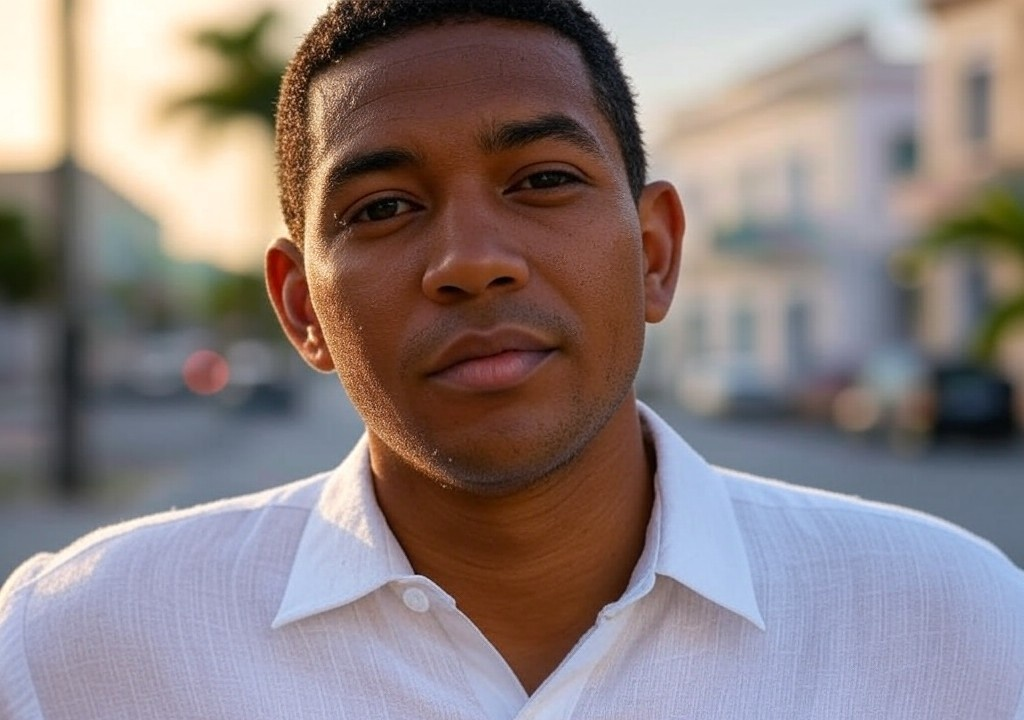You know that panicky feeling when someone asks you to do something that, deep down, you think you're wildly unqualified for? Your heart races, your palms sweat, and suddenly you’re wondering if you’ve stumbled into someone else’s story by mistake. That, mi amigo, is impostor syndrome, an all-too-familiar visitor that camps out in our minds rent-free. It tells us we’re not good enough, not talented enough, and—worst of all—that everyone is moments away from discovering we’re frauds.
Now imagine this: you’re sitting in your family’s bakery, surrounded by the comforting blend of Café Bustelo and pastelitos, working on your college application essay. You write about your heritage, your funny little metaphors for life, and the stubbornness you inherited from your mom (trust me, every Cuban mom comes with a PhD in stubborn). Then, you get into Florida State University. Yay, right? Except…not entirely. You show up on campus with your books and dreams in tow, only to be convinced you’re the academic equivalent of someone who accidentally wandered into the Oscars wearing jeans. How did you deserve to be here among all these geniuses?
Looking back, it’s laughable. But at the time, it felt like everyone else had a perfect résumé, and I was over here comparing my life to the cracked tiles of the bakery floor: scrappy, imperfect, but full of stories. The truth? Everyone feels like this at some point—whether you’re tackling college, stepping into a new career, or trying to convince your abuela you’re totally fine cooking arroz con pollo without her supervision. Let me tell you how I went from an impostor to (dare I say it) an expert at something, and how you can, too.
The “Not Good Enough” Narrator in Your Head
Picture this: you walk into a party, and instead of hearing Bad Bunny blasting on the speakers, you’re met with the voice of that judgy tía who loves to ask when you’re getting married. That’s what impostor syndrome feels like—an unwelcome commentary on every action you take.
When I landed my first teaching job, I promised myself I’d be the kind of teacher who made Shakespeare cool. But then there I was, staring down a room full of teenagers who looked at me like I was the substitute nobody asked for. While I tried desperately to teach metaphor and iambic pentameter, I was convinced I was one grilled cheese explosion away from a student filing "worst teacher ever" with the principal.
But here’s what I learned from that classroom—and no, it wasn’t how to avoid becoming the victim of a rogue spitball: The voice of self-doubt can only be drowned out by action. I started to rewrite my narrative, one lesson at a time. The kids liked how I connected Shakespeare to Cardi B lyrics. Eventually, even when someone fell asleep during Hamlet (rude, by the way), I knew deep down I was where I belonged.
If you’re battling your own inner “I’m not good enough” narrator, here’s my advice:
- Write a list of wins (even small ones). Passed a scary work deadline? Win. Survived a painfully awkward first date? Win. The little wins add up.
- Talk back to the inner critic. Imagine unleashing your Beyoncé-level confidence: “Actually, you’re wrong. I do belong here."
- Find your people. Whether it’s a trusted friend, a mentor, or anyone willing to text you affirmations at 2 a.m., lean on them when doubt creeps in. Think of them as your emotional hype squad.
Fake It? Nah, Grow Into It
You know that old advice: “Fake it ’til you make it”? I’d like to cordially invite you to throw it out the window. You’re not faking—you’re growing. Big difference.
When I started writing fiction, I felt like I’d somehow tricked people into thinking I had talent. (Spoiler alert: This is peak impostor syndrome delusion.) Then I got my first piece published. Did I celebrate? Sure—but only after I spent three hours convinced someone in editorial was going to email me saying, “Oops, wrong Raúl Batista.”
The truth is, nobody starts as “an expert.” Even José Martí probably looked at his first draft and thought, “Maybe poetry isn’t for me?” Confidence isn’t some magic wand you wave; it’s more like an old car you have to kickstart with practice, persistence, and probably a little duct tape.
- Learn as you go. When you feel underqualified, remind yourself that nobody stops learning—no one shows up to life with the instruction manual.
- Stay curious. Read books, watch YouTube tutorials, or, in my case, hang out with writers whose talent simultaneously inspires and terrifies you. You’ll grow if you’re open to it.
- Be kind to yourself. Growing pains mean you’re moving in the right direction. Channel your inner Mr. Rogers if you have to: “You’re doing great, sweetie.”
Own Your Spice
Here’s the best part: Your unique takes, quirks, and experiences? They’re your superpower. Picture a pot of ropa vieja. Sure, the basics are the same for everyone—meat, tomato sauce, spices—but nobody makes it exactly like your family does. That’s because every good dish needs its own sazón.
For me, a big turning point was realizing that my voice—the flavor of my Cuban upbringing, my obsession with storytelling, my tendency to work a food metaphor into everything—was what made me unique. It’s easier to find your strength when you stop trying to fit into a mold that wasn’t made for you.
Whatever you do, whether it’s teaching, writing, or finally mustering the courage to ask your crush out for cortaditos, bring YOUR full self to the table. It’s not just about having the perfect skills; it’s about flavor balance. Your humor, your weird hobbies, the things only you can bring? That’s your sazón.
¡Empower Yourself, Compadre!
Here’s the funny thing about impostor syndrome—it never totally disappears. Even now, when I hit “Publish” on something I’ve written, there’s a sliver of doubt that asks: "Will anyone even care?" But the difference is, I’ve learned to push past it. Call it resilience, call it stubborn Cuban pride. Either way, I’ve stopped waiting for permission to show up as the best version of myself.
If you’ve been feeling like an outsider in your own success story, let me end with this: Nobody else gets to decide whether or not you belong. That’s your call. And as someone who’s mistakenly texted exes and accidentally spilled café con leche on a perfectly good manuscript, trust me—you’re more capable than you think.
So next time you’re tempted to dim your light because you feel like a fraud, remember this: Even the best tortilla starts with a little masa. You’re enough, exactly as you are. Now go sprinkle some of that sazón on the world, would you?




















